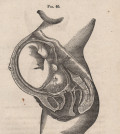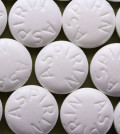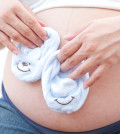- Could Your Grocery Store Meat Be Causing Recurring UTIs?
- Are You Making This Expensive Thermostat Error This Winter?
- Recognizing the Signs of Hypothyroidism
- 10 Strategies to Overcome Insomnia
- Could Artificial Sweeteners Be Aging the Brain Faster?
- Techniques for Soothing Your Nervous System
- Does the Water in Your House Smell Funny? Here’s Why
- Can a Daily Dose of Apple Cider Vinegar Actually Aid Weight Loss?
- 6 Health Beverages That Can Actually Spike Your Blood Sugar
- Treatment Options for Social Anxiety Disorder
-
Equal Numbers of Males, Females Are Conceived: Study
Researchers think more female embryos die than male embryos, which contradicts traditional thinking
- Posted March 30, 2015
-
Breast Cancer Is Not One Disease, Experts Say
New focus on tumor subtypes could help patients, according to medical groups
- Posted March 30, 2015
-
Migraine, Carpal Tunnel May Be Linked
Patients with one are more than twice as likely to have the other, study says
- Posted March 30, 2015
-
Synthetic Pot Linked to Kidney Injury
Researchers report on two studies that showed kidney damage in those who used the drug
- Posted March 30, 2015
-
Gestational Diabetes Drug Might Raise Babies’ Complication Risk
Study links glyburide to more infant intensive care and respiratory distress
- Posted March 30, 2015
-
Lots of Leafy Greens Might Shield Aging Brains, Study Finds
Vitamin K thought to slow deterioration
- Posted March 30, 2015
-
Could an Apple a Day Help Keep the Pharmacist Away?
Study finds no effect on doctor visits, but a slight decrease in need for prescription meds
- Posted March 30, 2015
-
U.S. Kids Getting Fewer Daily Calories From Fast Food
But one-third still eating it every day, study finds
- Posted March 30, 2015
-
Fecal Transplant Treats Serious, Recurrent Intestinal Infection
Experimental procedure helps people with C. difficile, small study shows
- Posted March 30, 2015
-
Milliliter-Only Dosing Recommended for Kids’ Meds
Using metrics, not teaspoons, reduces medication errors, American Academy of Pediatrics says
- Posted March 30, 2015



















